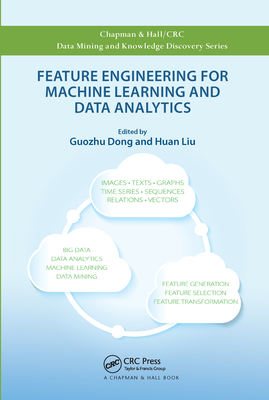
Feature Engineering for Machine Learning and Data Analytics
机器学习和数据分析的特征工程
经济统计学售 价:
¥
493.00
发货周期:预计5-7周发货
出 版 社
出版时间
2020年06月30日
装 帧
平装
页 码
418
开 本
234 x 156 mm (6.14 x 9.21
语 种
英文
综合评分
暂无评分
- 图书详情
- 目次
- 买家须知
- 书评(0)
- 权威书评(0)
图书简介
Feature engineering plays a vital role in big data analytics. Machine learning and data mining algorithms cannot work without data. Little can be achieved if there are few features to represent the underlying data objects, and the quality of results of those algorithms largely depends on the quality of the available features. Feature Engineering for Machine Learning and Data Analytics provides a comprehensive introduction to feature engineering, including feature generation, feature extraction, feature transformation, feature selection, and feature analysis and evaluation. The book presents key concepts, methods, examples, and applications, as well as chapters on feature engineering for major data types such as texts, images, sequences, time series, graphs, streaming data, software engineering data, Twitter data, and social media data. It also contains generic feature generation approaches, as well as methods for generating tried-and-tested, hand-crafted, domain-specific features.The first chapter defines the concepts of features and feature engineering, offers an overview of the book, and provides pointers to topics not covered in this book. The next six chapters are devoted to feature engineering, including feature generation for specific data types. The subsequent four chapters cover generic approaches for feature engineering, namely feature selection, feature transformation based feature engineering, deep learning based feature engineering, and pattern based feature generation and engineering. The last three chapters discuss feature engineering for social bot detection, software management, and Twitter-based applications respectively.This book can be used as a reference for data analysts, big data scientists, data preprocessing workers, project managers, project developers, prediction modelers, professors, researchers, graduate students, and upper level undergraduate students. It can also be used as th
本书暂无推荐
本书暂无推荐















